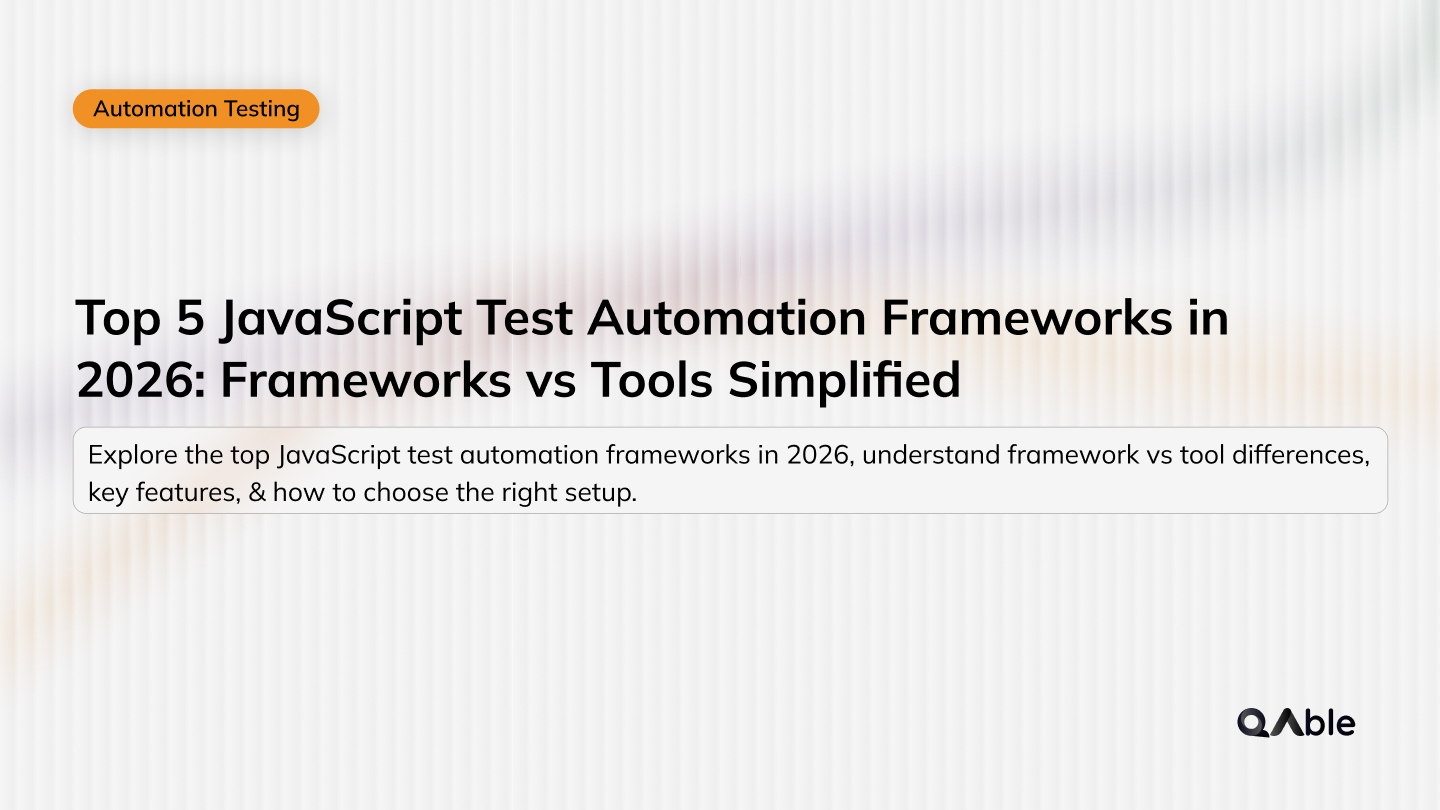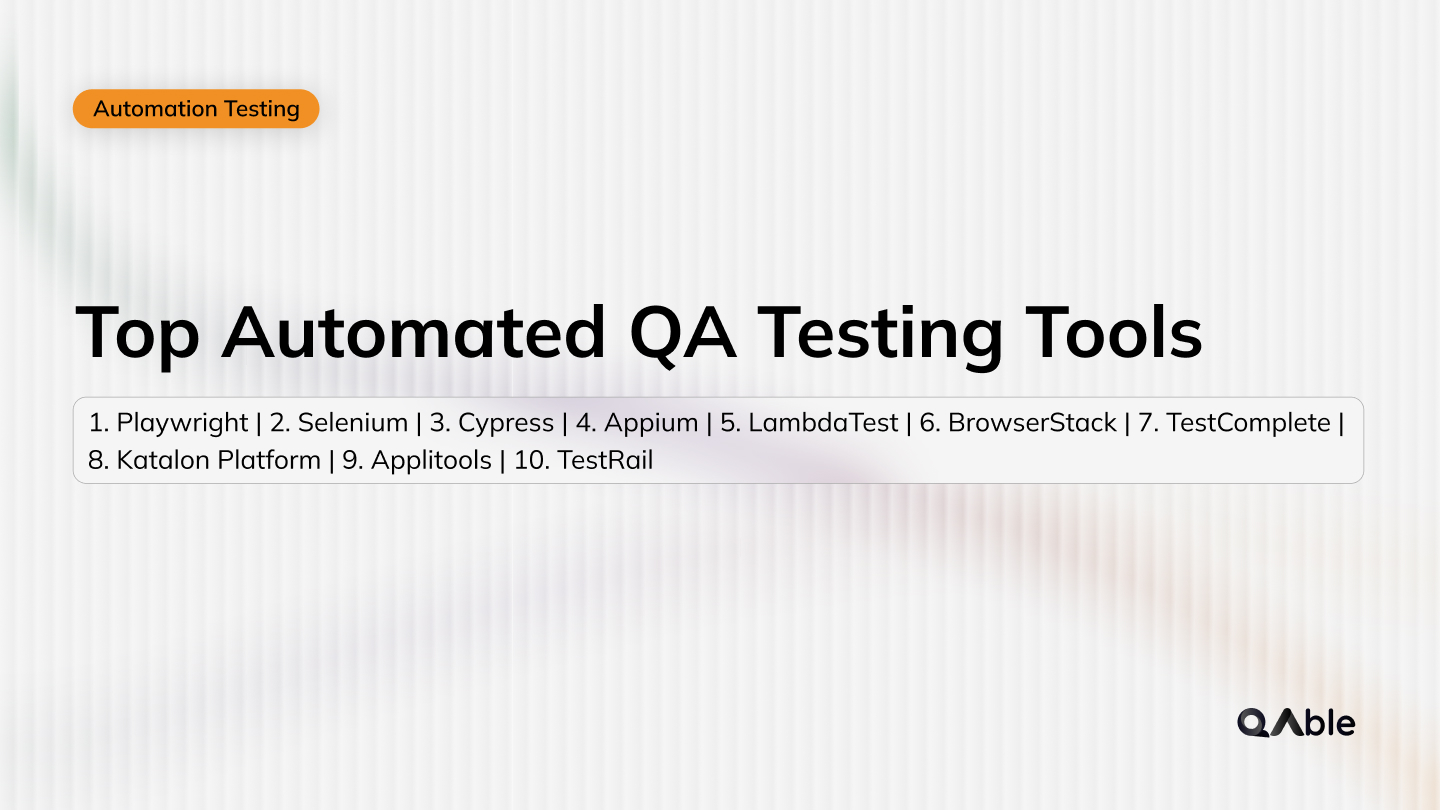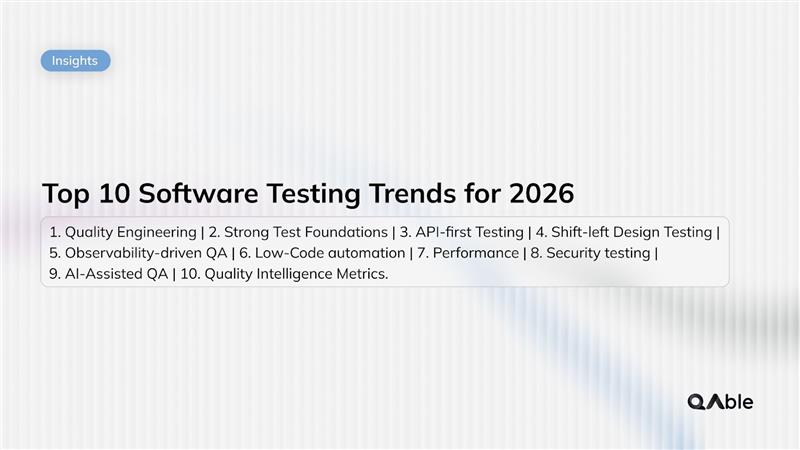Table of content
SHARE THIS ARTICLE
Is this blog hitting the mark?
Contact Us
Table of Contents
- Building a Bug-Free Travel and Hospitality App: Essential QA Practices
- Real-World Examples: How QA Builds Winning Travel and Hospitality Apps
- The Wrap Up: Continuous QA for Travel and Hospitality Success
- FAQs
The hospitality and travel industry is one of the most dynamic and competitive sectors in the world.
It is constantly evolving to meet the changing expectations of customers, who demand fast, convenient, and personalized services.
To succeed in this market, software companies and startups need to deliver high-quality products that are reliable, secure, and user-friendly.
However, developing and testing software for the hospitality and travel industry is not an easy task. It involves many challenges:
- Dealing with complex business processes and workflows
- Integrating with multiple systems and platforms
- Managing substantial data and transaction loads
- Ensuring compliance with regulations and standards
- Adapting to different languages and cultures
- Managing customer feedback and reviews
These challenges can lead to software defects, errors, and failures, which can negatively impacts the reputation, revenue, and customer satisfaction of software companies and startups.
Therefore, quality assurance (QA) is essential for ensuring the functionality, performance, and usability of hospitality and travel software.
QA is the process of verifying and validating that software meets the specified requirements and expectations. It involves various activities, such as:
- Developing and structuring test cases and scenarios.
- Executing and monitoring test results and reports
- Identifying and resolving defects and issues
- Evaluating and improving software quality and performance
- Documenting and communicating test outcomes and recommendations
Quality Assurance (QA) provides software companies and startups with numerous advantages:
Show learn more suggestions
- Improve customer satisfaction and loyalty
- Increase market share and competitive advantage
- Reduce costs and risks of software development and maintenance
- Enhance innovation and creativity
- Foster collaboration and teamwork
However, QA is not a one-time activity. It requires continuous improvement and adaptation to the changing needs and expectations of customers and the industry.
Therefore, software companies and startups need to adopt proven practices and solutions that can help them achieve effective and efficient QA.
Building a Bug-Free Travel and Hospitality App: Essential QA Practices
The travel and hospitality industry thrives on seamless experiences. Imagine a guest trying to book a last-minute stay, only to be met with a crashing app. Frustration sets in, and they head to a competitor. This is where QA (Quality Assurance) steps up as your secret weapon.
QA is all about rigorously testing your software to ensure it's smooth, secure, and functions flawlessly for every customer. Here's how a robust QA strategy benefits your hospitality business:
- Soaring Customer Satisfaction: A bug-free app translates to a happy customer. They can effortlessly book flights, find hotels, and manage reservations, leading to positive reviews and loyal users.
- Streamlined Costs: Fixing bugs after launch is a drain on resources. QA helps catch problems early on, saving you time and money down the road.
- Boosted Revenue: A reliable app builds trust and attracts new customers. The more people use your app, the more bookings you'll get.
Ready to supercharge your app with QA? Here are key practices to consider:
- Agile and DevOps: Your Best Friends: These methodologies encourage collaboration and communication between development and testing teams, resulting in faster software delivery. They also enable early bug detection and ongoing quality improvement.
- Automation and AI: Powerful Allies: Let automation and AI handle repetitive tasks like test case generation and reporting. This frees up your team's time, improves accuracy, and ensures comprehensive testing coverage. These tools are especially helpful in navigating the complexities of hospitality software and ever-changing customer behavior.
- Cloud and Mobile Testing: Ensuring Compatibility: Test your app across different cloud-based platforms and mobile devices. This guarantees compatibility, scalability, and security across various browsers, operating systems, and networks. Additionally, cloud-based testing offers access to valuable tools and resources to streamline the QA process.
- Domain-Specific Expertise is Key: Focus on testing specific functionalities relevant to the hospitality industry. This ensures your app aligns with industry standards, business workflows, and—most importantly—customer expectations in travel and booking.
- Partner with the Pros: Consider hiring a reputed QA software testing company. They offer expertise, experience, and resources to deliver comprehensive, customized QA solutions specifically designed for hospitality and travel software, ensuring cost-effectiveness and a flawless end product.
By implementing these best practices, you can ensure your hospitality app is a shining example of user-friendliness and reliability, propelling your business to success in the competitive travel industry.
Also Read: QA Automation Testing Services: Your Guide to Streamlining the Process
Real-World Examples: How QA Builds Winning Travel and Hospitality Apps
Let's see how industry leaders leverage QA to create best-in-class travel experiences:
- Booking.com: A travel giant with over 28 million listings, Booking.com uses a robust QA strategy. They embrace agile development, automation, cloud-based testing, and domain-specific testing to ensure their platform functions flawlessly across devices and languages. Additionally, partnering with Testlio allows them to conduct in-depth exploratory and usability testing. The result? Faster software releases, happier customers, and continuous growth.
- OYO: This hospitality startup offers affordable stays in over 800 cities. To maintain quality, OYO utilizes agile methodologies, automation tools, and cloud-based testing. They also partner with QA InfoTech for comprehensive testing, including functionality, performance, security, and accessibility. This translates to a smooth user experience, increased customer loyalty, and reduced development costs for OYO.
These examples showcase the power of QA in crafting exceptional hospitality apps. By implementing similar strategies, you can ensure your app delivers a seamless user experience, propelling your business forward in the competitive travel industry.
Also Read: Healthcare Application Testing: All You Should Know in 2024
The Wrap Up: Continuous QA for Travel and Hospitality Success
We've established that QA is the secret weapon for flawless hospitality and Travel apps. But remember, QA is an ongoing process. As the market and customer needs evolve, so should your QA strategy. Here's how to ensure continuous improvement:
- Embrace Proven Practices: Implement Agile methodologies, automation tools, and domain-specific testing to stay ahead of the curve.
Want to see these practices in action? Look no further than industry leaders like Booking.com and OYO. Their commitment to QA has resulted in a winning formula: happy customers, business growth, and a competitive edge.
Ready to elevate your Travel and hospitality app? We can help!
At QAble, our dedicated team brings over a decade of quality testing expertise to the table. We specialize in a full range of testing services, each crafted to meet the unique needs of the hospitality and travel industry’s software landscape, including:
- Functional Testing
- Performance Testing
- Security Testing
- Usability Testing
- [and more!]
Our team of qualified professionals leverages cutting-edge tools and proven methodologies to deliver the best possible results for your app.
Thank you for reading! We look forward to partnering with you on your Travel and hospitality software journey.
Discover More About QA Services
sales@qable.ioDelve deeper into the world of quality assurance (QA) services tailored to your industry needs. Have questions? We're here to listen and provide expert insights


Nishil Patel is the Co-founder of QAble, delivering advanced test automation solutions with a focus on quality and speed. He specializes in modern frameworks like Playwright, Selenium, and Appium, helping teams accelerate testing and ensure flawless application performance.
.svg)














.webp)
.webp)
.png)
.png)











.png)



.png)

.png)

.png)













.jpg)






.webp)

